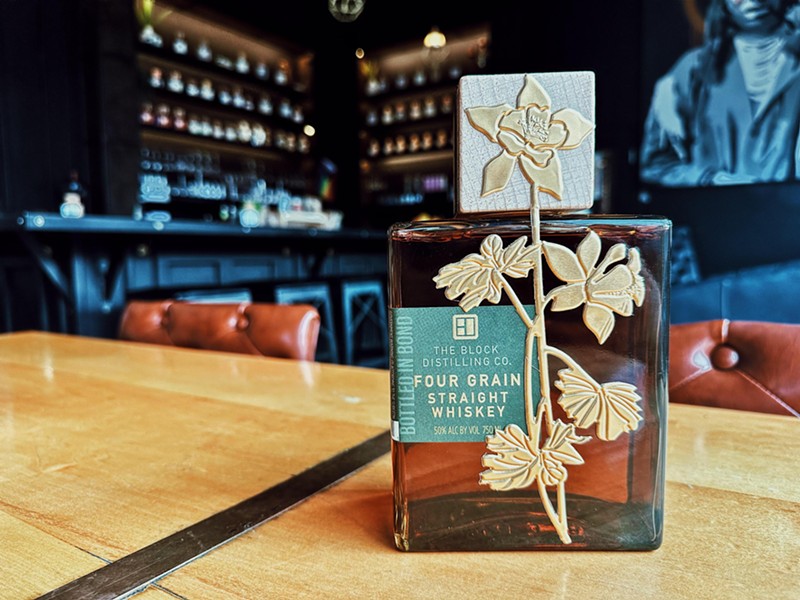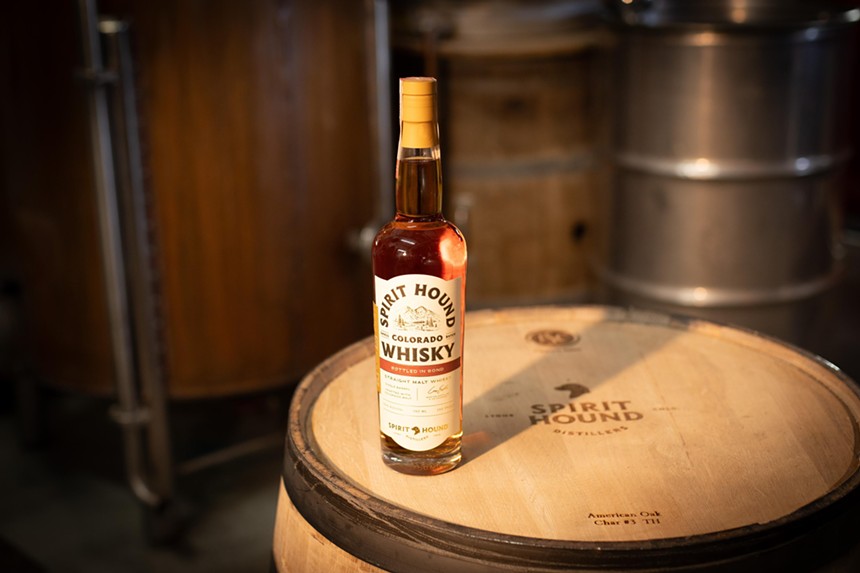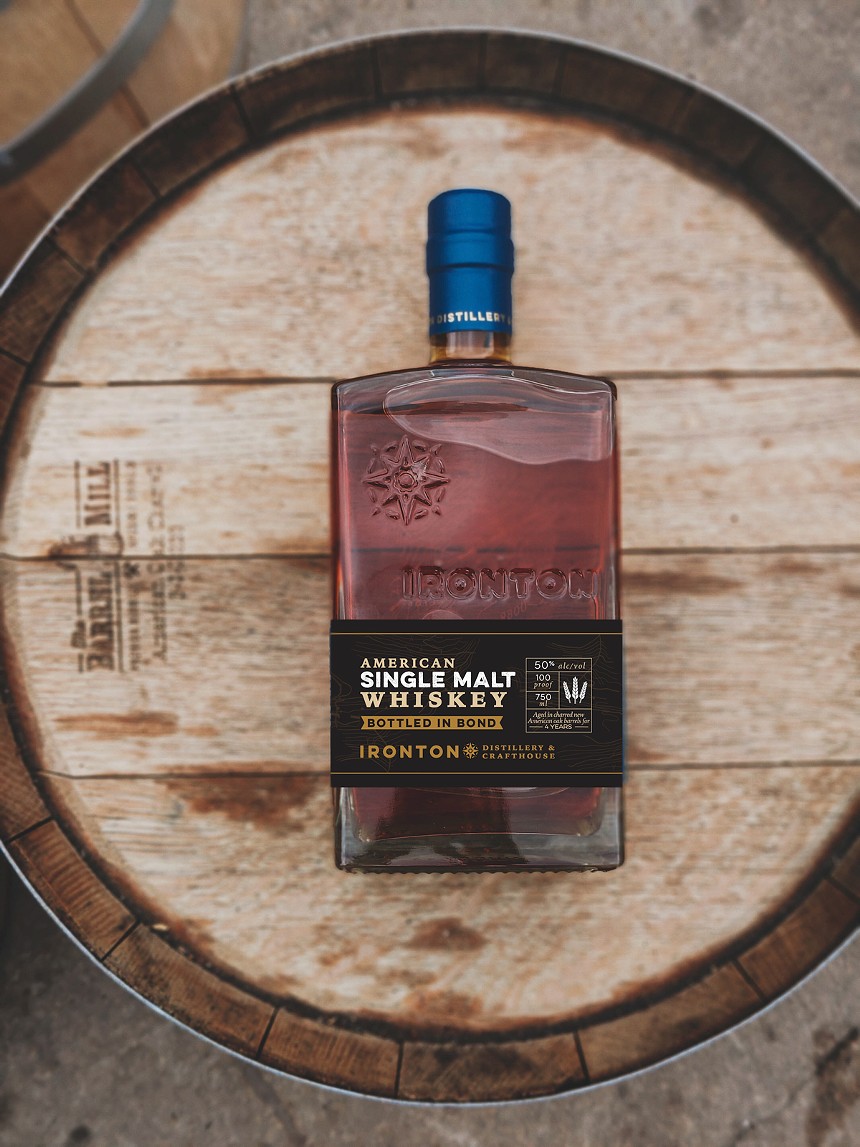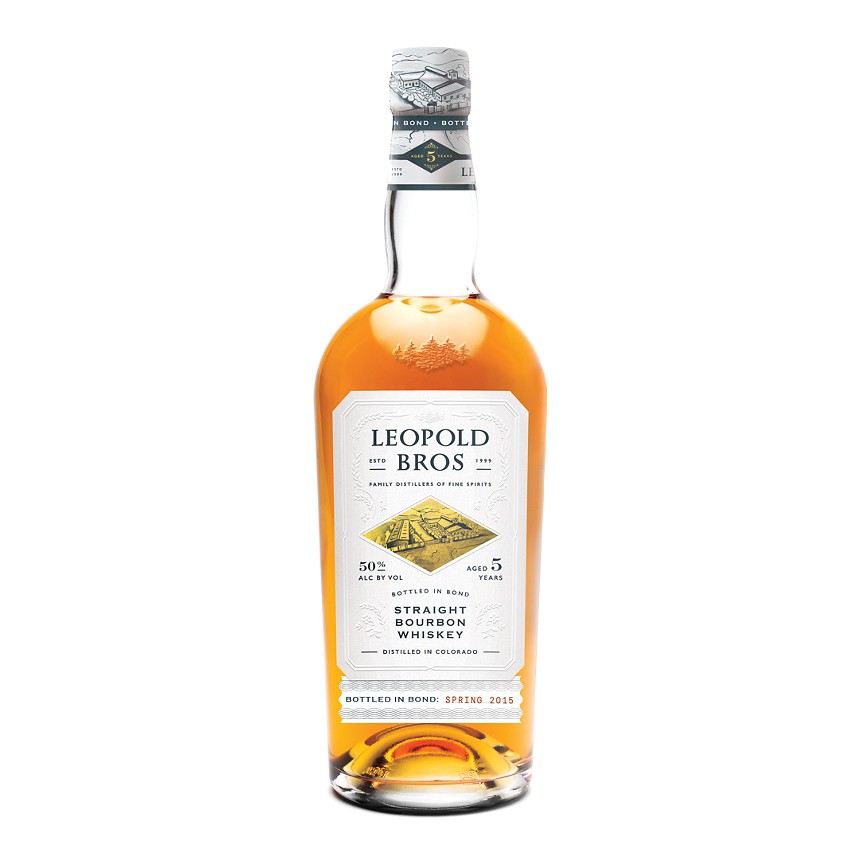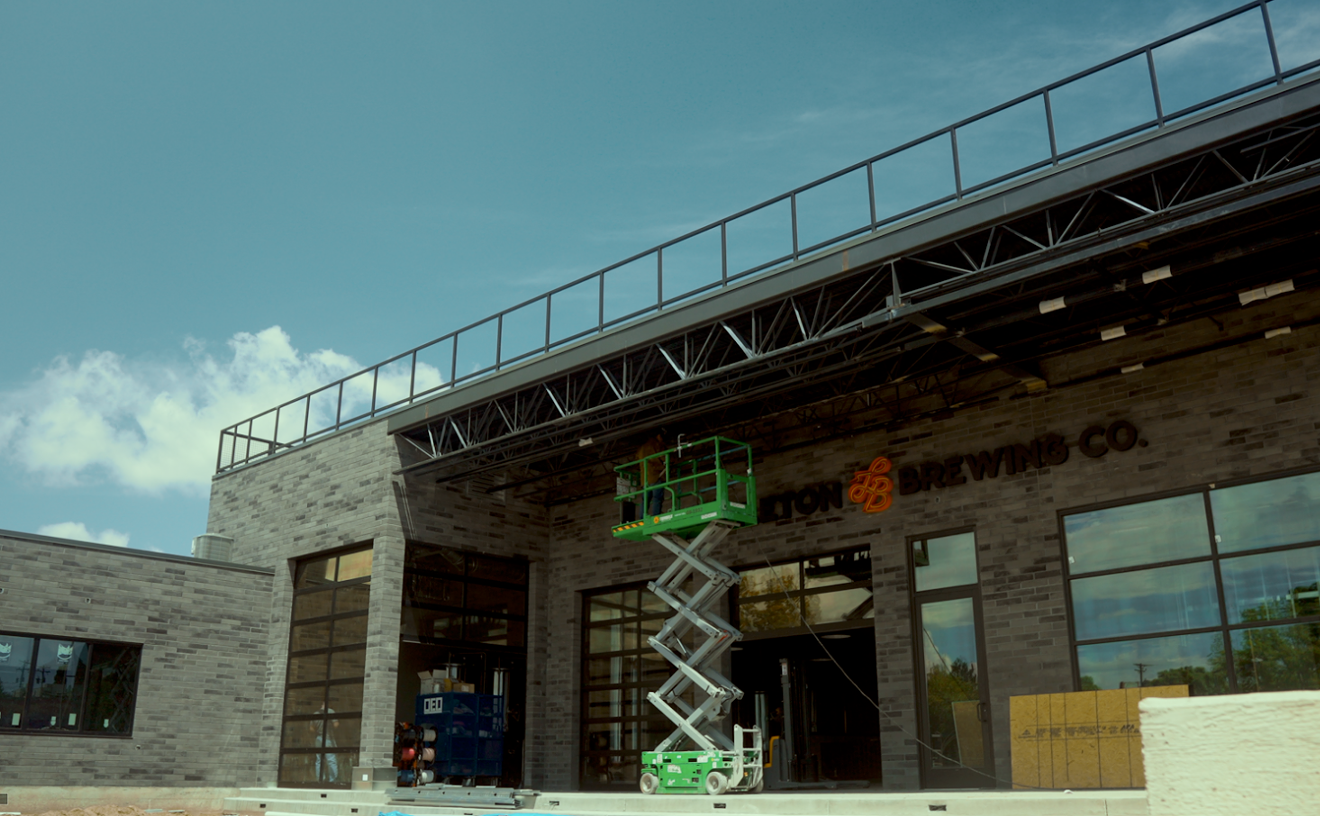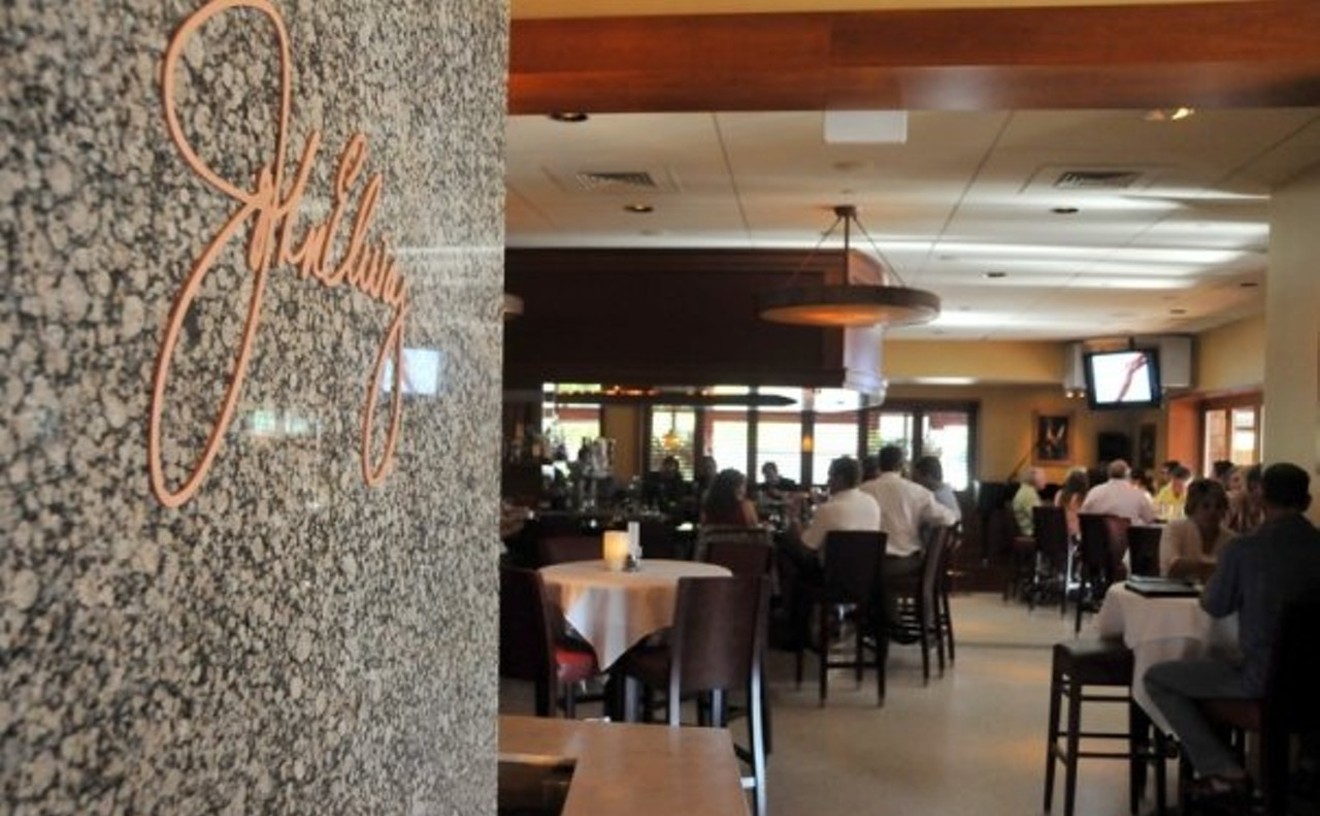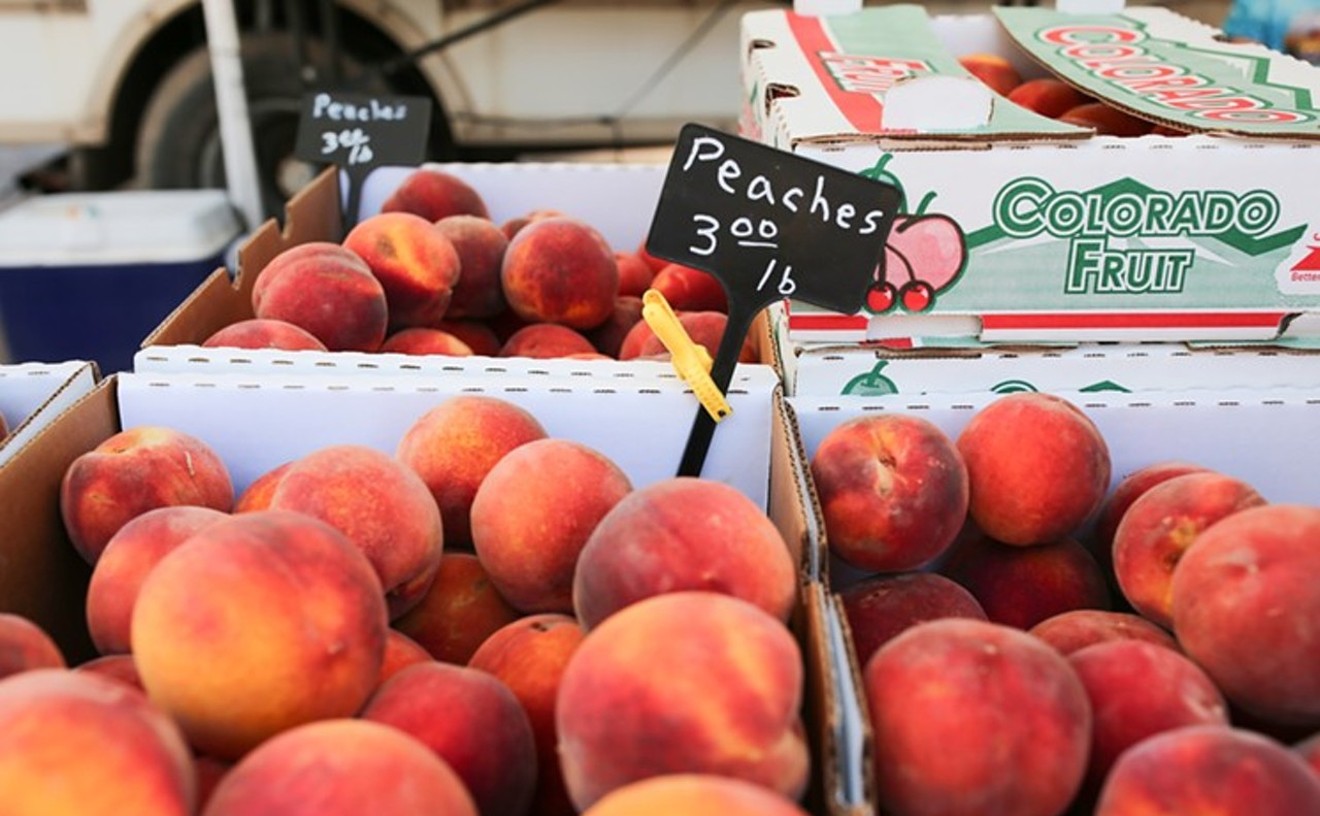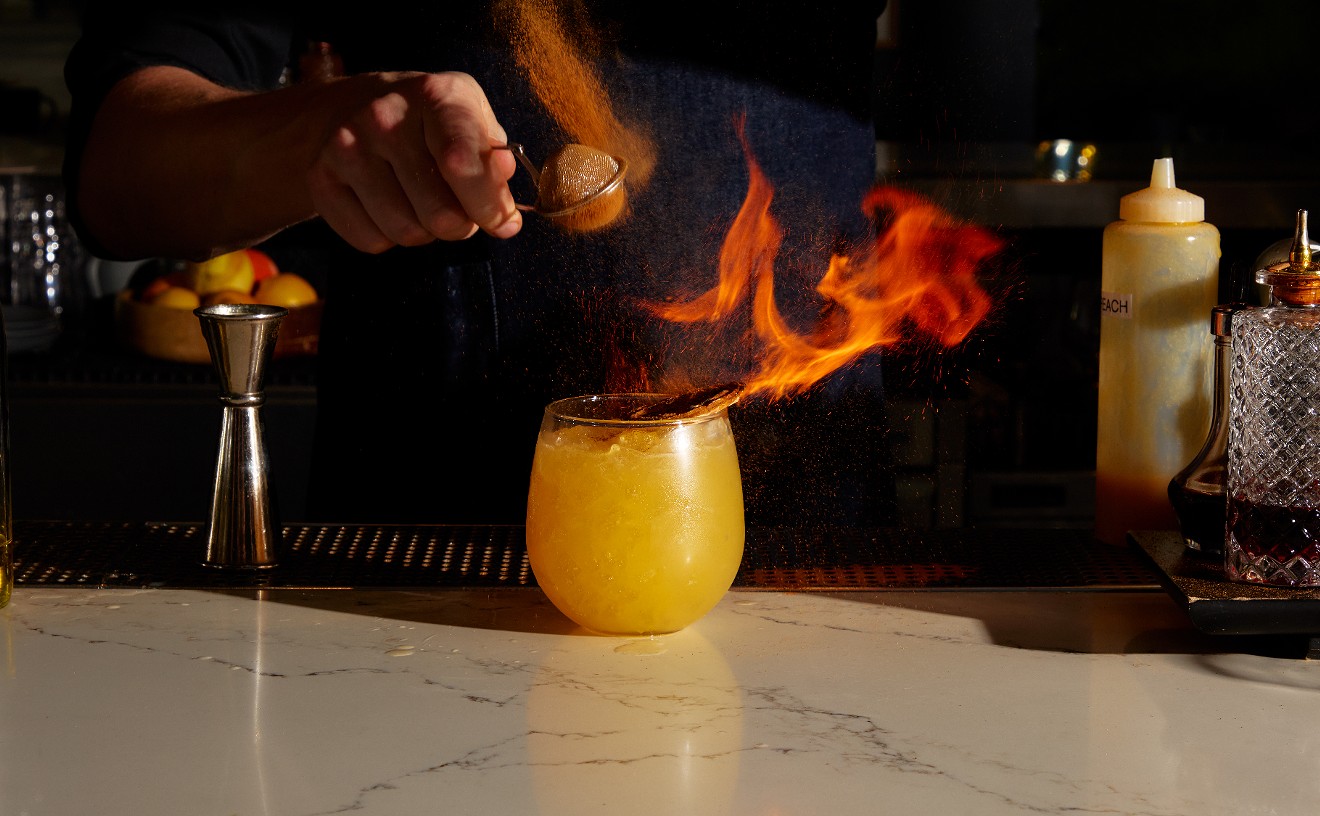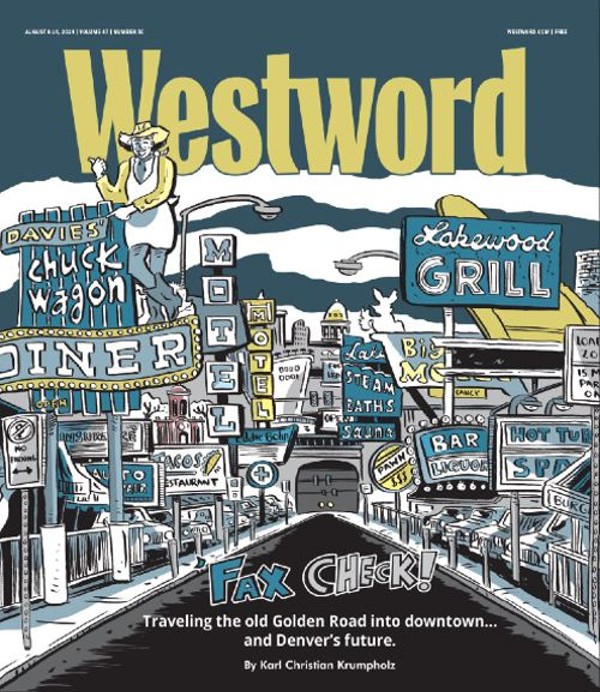"Above all, we always want our whiskey to be worth it. We want to have that extra aging push the product into flavors that we [set out] to accomplish and capture, offering something unique to the customer," says Kraig Weaver, owner and head distiller at the Block Distilling in RiNo. Weaver's business is one of several local distilleries releasing bottled-in-bond offerings to customers this summer, showing a maturity in Colorado's whiskey scene.
Bottled-in-bond labeling was created over a century ago with the Bottled-in-Bond Act of 1897. It requires that spirits labeled "bottled-in-bond" have to be aged for at least four years, produced in a single season by a single distiller in a bonded warehouse, and bottled at 100 proof (50 percent ABV). At the time, it was a way to guarantee a certain level of quality to the consumer in an era when deception was more commonplace. In the heart of bourbon country, the label means a bit less today, but for Colorado's burgeoning spirits scene, which is made up of mostly smaller, younger distilleries, the words carry more significance.
"To the big, huge distilleries, four years is nothing," says Weaver. "[But for] smaller distillers, this is a statement that the brand has been around and able to put the passion and love into the product for four years, which is a long time for a small business."
The bottled-in-bond statement is important to Weaver. "Getting barrels to a two-year statement felt like [a big] accomplishment," he notes. "So having something turn four is definitely, at a minimum, a personal marker for us that we were able to get the whiskey to this point and also survive. It's a marker for the small business, and a labor of love."
While the four-year moniker is important, more time in the barrel isn't always better — especially in Colorado's dry climate. "The connoisseur starts to get more interested when the products are older, because a lot of them are used to going after Kentucky bourbons that are eight, nine, twenty years old," says Weaver. "To us, age doesn't necessarily make the product. There's a max age in our opinion, where that balance [no longer] has a resemblance of the grains that were used to create it. It just tastes like the barrel at that point."
Craig Engelhorn, co-founder and master distiller at Spirit Hound, agrees. "No way would I ever take whiskey to ten years here in Lyons," he says. "We find it gets pretty woody when it gets to seven or eight years."
Engelhorn, who was formerly the brewer at Oskar Blues, has been making whiskey for twelve years and feels there is still some weight behind the bottled-in-bond nomenclature. "It's a little bit of a badge of honor," he says.
While he's not opposed to clearly labeled sourcing — the act of purchasing whiskey from another, usually far larger distiller and labeling it as your own — he says that you cannot source a whiskey and call it bonded.
For Ironton head distiller Laura Walters, being able to release a bottled-in-bond whiskey is an achievement. "It's a huge milestone for us," she says. "It kind of puts your foot on the ground in the whiskey world. Before four years, people would say, 'Well, the whiskey is good, but when it's older, it's going to be great.'"
For a taste of Colorado's whiskey-making skills, keep an eye out for these bottled-in-bond offerings:
The Block Distilling
2990 Larimer Street
theblockdistilling.com
Four Grain Straight Whiskey
Retails for $68
This is essentially an older version of the Block's staple four-grain whiskey. It's an oat-heavy malt bill — not the most efficient, Weaver notes, but one that adds a good deal of flavor to the final product. Plus, he says, the spirit picks up some deeper sugars and spice notes from the extended time in the barrel.
The barrels themselves have 36-month seasoned staves, roughly three times what is typical for a whiskey cask. "The longer you let the seasoning process go, the more those flavors change," explains Weaver. "You end up going from green, grassy flavors to more floral, earthy notes from the actual wood itself." The rye, oats and red and white wheat used to make the whiskey are all grown at the Block's farm in Missouri, while the barley comes from Colorado. Everything is distilled in-house at its RiNo location.
Boulder Spirits
5311 Western Avenue, Boulder
boulderspirits.com
American Single Malt 7 Year, American Single Malt 4 Year and Bourbon
Bottles retail for $75, $69 and $63, respectively
Boulder Spirits bills its seven-year as the oldest bottled-in-bond American single malt whiskey ever. Six barrels were laid to rest in 2016 and bottled in the summer of 2023. The result, according to the distillery, is a spirit rich in oak and balanced with a luscious mouthfeel.
Ironton Distilling
3636 Chestnut Place
irontondistillery.com
American SIngle Malt Whiskey
Retails for $70
Ironton recently released this bottle while celebrating its sixth year in business. It was aged for over four years in white American oak barrels with a #2 char. Walters bills this as a drier whiskey. "It's got some spice notes, bread, earthy, butter," she says. "It has minerality to it — I think it drinks more like a Scotch.".
Laws Whiskey House
1420 South Acoma Street
lawswhiskeyhouse.com
Four Grain Bourbon, San Luis Valley Rye and Centennial Straight Wheat Whiskey
Each retails for $84.99
Powerhouse distiller Laws has three separate bottled-in-bond offerings available right now: a bourbon, rye and wheated whiskey, each aged in oak barrels for over seven years. Laws uses Colorado grains exclusively in these whiskeys, with Colorado Malting and Whiskey Sisters being prominently featured in its spirits. This month, Laws plans to open its new, expanded south Denver tasting room, which is four times larger than the previous space.
Leopold Bros.
5285 Joliet Street
leopoldbros.com
5 Year Straight Bourbon Whiskey
Retails for $56.99
Leopold Bros. has been making spirits in Colorado for over fifteen years. The five-year bottled-in-bond bourbon debuted in 2020 and has become a year-round offering. The distillery utilizes open fermentation in wooden tanks with both house yeast and wild yeast strains inoculating the batch before being pot-distilled and aged for five years in barrels at its warehouse.
Mile High Spirits
2201 Lawrence Street
drinkmhs.com
Fireside Straight Bourbon and Wheated
Retails for $50 and $69, respectively
This Denver distillery offers a bottled-in-bond version of its popular Fireside whiskey, which it says has notes of caramel apple, rye spice and toasted pecans. It's made with grains and corn grown in Colorado and won a double gold at the 2024 San Francisco World Spirits Competition. Its Wheated bottle was made with three different types of wheat, comprising 19 percent of the grain bill.
Spirit Hound Distillers
4196 Ute Highway, Lyons
spirithounds.com
Straight Malt Whisky
Retails for $83
Engelhorn says that his favorite products from Spirit Hound come out of four- to six-year barrels. This particular offering is six years old. "I think our whiskey shines really well at 100 proof," says Engelhorn. Eighteen percent of the malt is peat-smoked malt from Colorado Malting, which is run by the Cody Family in Alamosa. The distillery lists notes of toasted sugar, honey, butterscotch, pear and a hint of smoke.
Coming this fall:
Buena Vista's Deerhammer Distilling recently released a 100-proof four-grain bourbon. While the minimum age of the whiskey was four years, it was blended with five- and six-year whiskey, so it is not technically bottled-in-bond. However, this fall, Deerhammer plans to release single barrels of the bourbon that will be bottled-in-bond; it will be available in select stores and at its tasting room.

Audio By Carbonatix
[
{
"name": "Air - MediumRectangle - Inline Content - Mobile Display Size",
"component": "12017618",
"insertPoint": "2",
"requiredCountToDisplay": "2",
"watchElement": ".fdn-content-body",
"astAdList": [
{
"adType": "rectangle",
"displayTargets": "mobile"
}
]
},{
"name": "Editor Picks",
"component": "17242653",
"insertPoint": "4",
"requiredCountToDisplay": "1",
"watchElement": ".fdn-content-body",
"astAdList": [
{
"adType": "rectangle",
"displayTargets": "desktop|tablet"
},{
"adType": "rectangle",
"displayTargets": "desktop|tablet|mobile"
}
]
},{
"name": "Inline Links",
"component": "18838239",
"insertPoint": "8th",
"startingPoint": 8,
"requiredCountToDisplay": "7",
"maxInsertions": 25
},{
"name": "Air - MediumRectangle - Combo - Inline Content",
"component": "17261320",
"insertPoint": "8th",
"startingPoint": 8,
"requiredCountToDisplay": "7",
"maxInsertions": 25,
"watchElement": ".fdn-content-body",
"astAdList": [
{
"adType": "rectangle",
"displayTargets": "desktop|tablet"
},{
"adType": "rectangle",
"displayTargets": "desktop|tablet|mobile"
}
]
},{
"name": "Inline Links",
"component": "18838239",
"insertPoint": "8th",
"startingPoint": 12,
"requiredCountToDisplay": "11",
"maxInsertions": 25
},{
"name": "Air - Leaderboard Tower - Combo - Inline Content",
"component": "17261321",
"insertPoint": "8th",
"startingPoint": 12,
"requiredCountToDisplay": "11",
"maxInsertions": 25,
"watchElement": ".fdn-content-body",
"astAdList": [
{
"adType": "leaderboardInlineContent",
"displayTargets": "desktop|tablet"
},{
"adType": "tower",
"displayTargets": "mobile"
}
]
}
]

